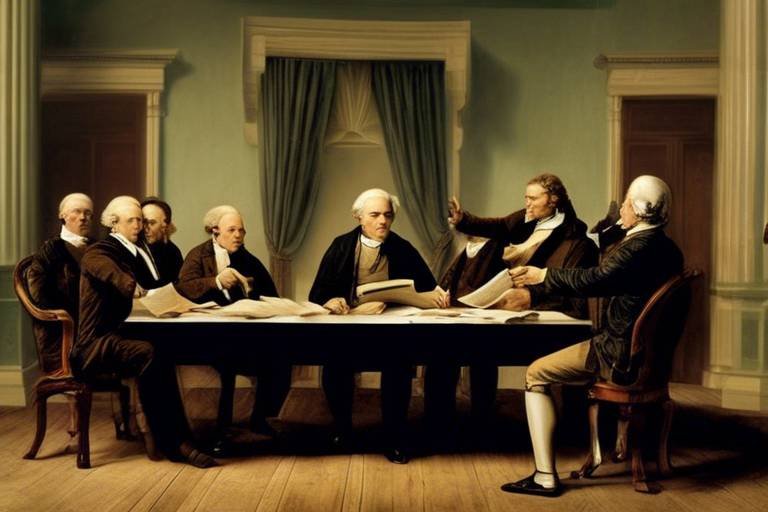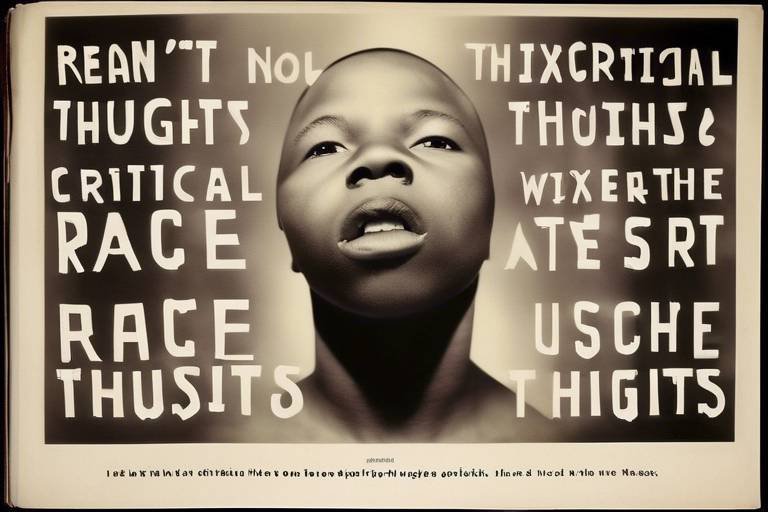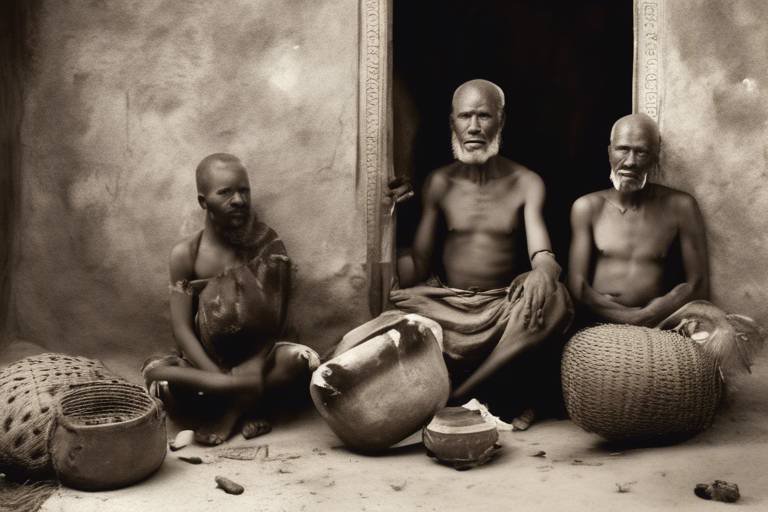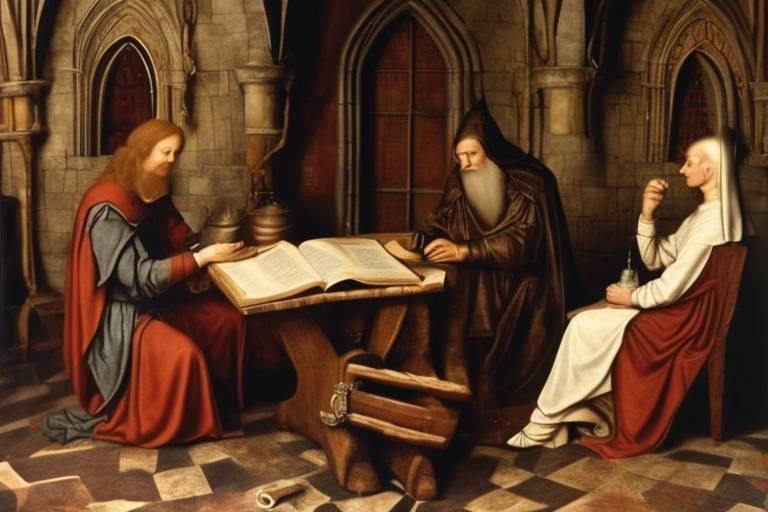Social Contract Theory - A Modern Examination
Welcome to the fascinating world of social contract theory, a concept that has evolved dramatically over centuries and remains incredibly relevant in today's discussions about governance and society. At its core, social contract theory seeks to answer a fundamental question: why do we, as individuals, agree to form societies and abide by their rules? This question is not just academic; it resonates deeply with our everyday lives, influencing everything from our political systems to our personal interactions.
Imagine for a moment a world without laws or social structures. It might sound liberating, but the chaos that ensues could be overwhelming. This is where social contract theory steps in, proposing that individuals consent, either explicitly or implicitly, to surrender some of their freedoms in exchange for the protection of their remaining rights. It’s a trade-off that, while sometimes contentious, is essential for maintaining order and promoting the common good.
In this modern examination, we will dive into the rich historical background of social contract theory, exploring the key philosophers who laid its groundwork—thinkers like Thomas Hobbes, John Locke, and Jean-Jacques Rousseau. Each of these intellectual giants contributed unique perspectives that not only shaped their own eras but also continue to influence contemporary political thought and practice.
As we journey through the evolution of this theory, we will also highlight its modern applications, particularly in discussions surrounding democracy, civil rights, and governance. The relevance of social contract theory today is undeniable; it provides a framework for understanding the responsibilities of governments and the rights of citizens in an increasingly complex world.
However, no examination would be complete without addressing the critiques of social contract theory. Critics argue that it can oversimplify the intricate dynamics of society, often ignoring the voices of marginalized groups. This leads us to consider feminist critiques and postcolonial perspectives, both of which challenge traditional views and push for a more inclusive understanding of social contracts.
Finally, we will look toward the future. As we face unprecedented challenges such as globalization, technological advancements, and environmental crises, how might social contract theory evolve? Can it adapt to meet the needs of a diverse and rapidly changing world? These questions are not just philosophical musings; they are pressing issues that require thoughtful consideration and innovative solutions.
So, buckle up as we embark on this intellectual adventure! By the end of this article, you'll not only have a deeper understanding of social contract theory but also appreciate its profound implications for our lives today.
- What is social contract theory? Social contract theory is a philosophical concept that explores the legitimacy of authority and the origins of society, suggesting that individuals consent to form societies and abide by their rules in exchange for protection and order.
- Who are the key philosophers associated with social contract theory? The major thinkers include Thomas Hobbes, John Locke, and Jean-Jacques Rousseau, each contributing unique perspectives on the nature of the social contract.
- How is social contract theory relevant today? It remains relevant in contemporary discussions about governance, democracy, and civil rights, providing a framework for understanding the relationship between individuals and the state.
- What are some critiques of social contract theory? Critics argue that it can oversimplify complex social dynamics and often neglect the perspectives of marginalized groups, leading to calls for more inclusive frameworks.
- How might social contract theory evolve in the future? It may adapt to address contemporary challenges such as globalization, technology, and environmental issues, ensuring it remains applicable in a changing world.

Historical Background
The roots of social contract theory can be traced back to a tumultuous period in European history, where the foundations of modern political thought began to take shape. This evolution is largely attributed to the works of key philosophers who grappled with the nature of human existence, governance, and society. To understand the significance of social contract theory, one must first delve into the historical context that birthed it.
During the 17th and 18th centuries, Europe was undergoing profound changes. The rise of the nation-state, the decline of feudalism, and the aftermath of the Reformation created a fertile ground for new ideas about authority and individual rights. In this environment, thinkers like Thomas Hobbes, John Locke, and Jean-Jacques Rousseau emerged, each presenting unique perspectives on the relationship between the individual and the state.
Hobbes, writing in the aftermath of the English Civil War, introduced his ideas in a time marked by chaos and instability. He proposed that in a state of nature—where no authority existed—life would be "solitary, poor, nasty, brutish, and short." Thus, he argued for a powerful sovereign to maintain peace and order. His work, Leviathan, laid the groundwork for the idea that individuals consent to surrender some of their freedoms to a governing body in exchange for protection and security.
In contrast, Locke's philosophy emerged during a period of relative stability and enlightenment. He challenged Hobbes' bleak view of humanity, positing that individuals are born with certain natural rights—namely, life, liberty, and property. Locke argued that the social contract is not merely a means to avoid chaos but a framework to protect these rights. His ideas, particularly those articulated in Two Treatises of Government, significantly influenced liberal thought and the development of democratic principles.
Rousseau, writing in the 18th century, took a different approach altogether. He believed that the social contract should reflect the collective will of the people, a concept he termed the general will. Rousseau's work, The Social Contract, emphasized the importance of community and social equality, challenging the individualistic tendencies of his predecessors. He argued that true freedom is found not in isolation but in participation in the collective decision-making process.
In summary, the historical background of social contract theory is rich and complex, shaped by the thoughts of these influential philosophers. Their diverse perspectives provide a framework for understanding the evolution of political thought and continue to resonate in contemporary discussions about governance and individual rights. The interplay between chaos and order, individualism and collectivism, remains a central theme in the ongoing dialogue about the social contract and its implications for modern society.
As we navigate the complexities of today's world, the insights gleaned from these early thinkers remind us that the social contract is not just a theoretical construct; it is a living framework that continues to evolve, reflecting our changing values and societal needs.

Key Philosophers and Their Contributions
The social contract theory has been shaped and molded by various thinkers throughout history, each contributing unique perspectives that resonate even in today's political landscape. These philosophers, including Thomas Hobbes, John Locke, and Jean-Jacques Rousseau, laid the groundwork for understanding the relationship between individuals and the state. Their ideas not only reflect the tumultuous times in which they lived but also pose questions that remain relevant in our modern society.
Starting with Thomas Hobbes, his seminal work, Leviathan, published in 1651, paints a rather bleak picture of human nature. Hobbes argued that in the absence of a strong governing authority, life would be “solitary, poor, nasty, brutish, and short.” He believed that individuals, driven by self-interest, would inevitably fall into a state of chaos and violence. To escape this anarchy, people would agree to surrender their freedoms to a sovereign power, thus establishing a social contract. This authority, in Hobbes' view, must be absolute to maintain peace and order. His vision prompts us to ask: is it worth sacrificing our freedoms for security?
In stark contrast, John Locke, writing in the late 17th century, offered a more optimistic view of human nature. Locke's interpretation of the social contract emphasizes the protection of individual rights and the idea of government as a servant to the people. He argued that individuals possess natural rights to life, liberty, and property, which the government must respect and protect. If a government fails to do so, Locke asserted that citizens have the right to revolt. His ideas laid the foundation for modern democracy and civil rights, inviting us to consider: what happens when the government oversteps its bounds?
Then we have Jean-Jacques Rousseau, whose work in the 18th century introduced the concept of the general will. Rousseau believed that true freedom is found in collective decision-making, where individuals come together to form a collective identity. He challenged the notion of individualism prevalent in Locke's theory, arguing that the social contract should prioritize the common good over personal interests. This perspective leads us to reflect: can we truly be free if we are only looking out for ourselves?
Each of these philosophers not only contributed to the discourse on governance but also ignited debates that extend into various fields, including ethics, law, and sociology. Their contrasting views create a rich tapestry of ideas that continue to influence contemporary thought. Below is a table summarizing their core contributions:
| Philosopher | Key Ideas | Impact on Modern Thought |
|---|---|---|
| Thomas Hobbes | Absolute sovereignty, state of nature, need for strong authority | Foundation for authoritarian governance theories |
| John Locke | Natural rights, government accountability, right to revolt | Influence on democratic principles and civil rights |
| Jean-Jacques Rousseau | General will, collective decision-making, social equality | Challenges to individualism, basis for modern socialism |
In conclusion, the contributions of these key philosophers form the bedrock of social contract theory. Their ideas not only shaped the political landscape of their time but continue to provoke thought and discussion about the nature of authority, individual rights, and the common good. As we navigate the complexities of contemporary governance, their insights remind us that the social contract is not just a historical concept; it is a living dialogue that evolves with society.

Thomas Hobbes
When we dive into the world of social contract theory, stands out as a pivotal figure. His ideas, articulated in his seminal work, Leviathan, published in 1651, paint a rather grim picture of human nature. Hobbes believed that in a state of nature—where no government or authority exists—life would be "solitary, poor, nasty, brutish, and short." This bleak outlook on humanity drove him to advocate for a powerful, centralized authority to maintain order and prevent chaos.
At the core of Hobbes' philosophy is the notion that individuals, in their quest for self-preservation, willingly surrender certain freedoms to a sovereign power. This exchange is what he termed the social contract. In essence, people agree to abide by the rules set by this authority in exchange for protection and the maintenance of peace. Hobbes argued that this sovereign should hold absolute power, as any challenge to that power could lead back to the anarchy of the state of nature.
Hobbes' perspective on the social contract raises some intriguing questions: How much freedom are we willing to sacrifice for security? Is absolute authority ever justified? To Hobbes, the answer was clear—without a strong leader, society would descend into chaos. His belief in a powerful government was not just theoretical; it was a response to the political turmoil of his time, particularly the English Civil War. He saw firsthand the consequences of a fractured society, which only reinforced his views.
To better understand Hobbes' arguments, consider the following aspects of his theory:
- State of Nature: Hobbes described it as a state of perpetual war, where every individual is in constant competition for resources.
- Social Contract: The agreement among individuals to create a governing body that would maintain peace and security.
- Absolute Sovereignty: Hobbes believed that the sovereign must have complete control to ensure compliance and prevent rebellion.
His ideas have sparked significant debate over the years. While some argue that Hobbes' advocacy for a strong central authority is necessary to maintain order, others contend that it risks infringing on individual liberties. This tension between authority and freedom continues to resonate in modern political discourse, making Hobbes' contributions to social contract theory as relevant today as they were in the 17th century.
In summary, Thomas Hobbes' vision of the social contract serves as a foundational element in our understanding of governance and authority. His belief in the necessity of a powerful sovereign to curb humanity's darker instincts challenges us to consider the delicate balance between security and freedom. As we navigate the complexities of modern society, Hobbes' insights remain a critical part of the conversation.
- What is the main idea of Hobbes' social contract theory? Hobbes believed that individuals surrender certain freedoms to a powerful sovereign in exchange for security and order.
- Why did Hobbes advocate for absolute sovereignty? He argued that only absolute authority could prevent the chaos of the state of nature, where life would be violent and insecure.
- How do Hobbes' ideas apply to modern governance? His theories prompt ongoing debates about the balance between governmental authority and individual freedoms in contemporary society.

John Locke
John Locke, often hailed as the father of liberalism, brought a refreshing perspective to social contract theory that diverged significantly from his predecessors. While Thomas Hobbes painted a grim picture of human nature, Locke viewed individuals as inherently rational and capable of self-governance. This fundamental difference shaped his ideas about the role of government and the rights of the individual. Locke believed that the primary purpose of government was to protect the natural rights of life, liberty, and property. In his view, individuals enter into a social contract not out of fear of chaos, but rather to safeguard their freedoms and ensure mutual protection.
Locke's concept of the social contract is rooted in the idea of consent. He argued that legitimate government is based on the consent of the governed, which means that individuals must agree to form a society and abide by its rules. This consent is not a one-time event but an ongoing process that legitimizes the authority of the government. If a government fails to protect the rights of its citizens or oversteps its bounds, Locke asserted that the people have the right to revolt. This revolutionary idea laid the groundwork for modern democratic thought and provided a philosophical justification for the American and French revolutions.
One of Locke's most significant contributions to social contract theory is his emphasis on natural rights. He posited that these rights are inherent and cannot be surrendered or transferred. In his view, the state exists to protect these rights, and any government that violates them loses its legitimacy. This notion of inalienable rights is a cornerstone of contemporary human rights discourse. Locke’s ideas have permeated various aspects of political philosophy and continue to influence debates on governance, personal freedom, and civil rights today.
Locke also introduced the concept of the separation of powers, which is crucial for preventing tyranny. He argued that legislative and executive powers should be distinct to ensure that no single entity can wield excessive control. This idea has been foundational in the development of modern democratic systems, where checks and balances are essential for maintaining a fair and just society. By advocating for a government that is accountable to its citizens and operates within the confines of the law, Locke's work continues to resonate in discussions about governance and civil liberties.
In summary, John Locke's interpretation of social contract theory has profoundly shaped modern political thought. His focus on individual rights, government accountability, and the importance of consent has laid the groundwork for contemporary democratic principles. As we navigate the complexities of today's political landscape, Locke's insights remind us of the enduring value of protecting individual freedoms and ensuring that government remains a servant of the people.
- What is John Locke's view on the state of nature? Locke believed that in the state of nature, individuals are free and equal, possessing natural rights that must be protected by government.
- How does Locke's social contract differ from Hobbes'? Unlike Hobbes, who viewed humans as needing a strong authority to prevent chaos, Locke believed that people could govern themselves and that government should protect their rights.
- What are natural rights according to Locke? Locke identified natural rights as life, liberty, and property, which he argued should be preserved by any legitimate government.
- Can people revolt against their government according to Locke? Yes, Locke argued that if a government fails to protect the rights of its citizens, the people have the right to revolt and establish a new government.

Jean-Jacques Rousseau
Jean-Jacques Rousseau, a pivotal figure in the realm of social contract theory, introduced ideas that challenged the prevailing notions of his time. Unlike his predecessors, Rousseau emphasized the importance of the collective over the individual, arguing that true freedom is found not in isolation but in our connection to the community. His groundbreaking work, The Social Contract, posits that legitimate political authority relies on a social contract agreed upon by all members of society. This contract is not merely a tool for governance; it is the foundation of a moral and political community.
Rousseau's concept of the general will is central to his philosophy. He believed that the general will represents the collective interests of the people, transcending individual desires. In this view, the will of the majority does not merely reflect the sum of individual preferences but rather aims for the common good. Rousseau famously stated, “Man is born free, and everywhere he is in chains,” highlighting the tension between individual liberty and societal constraints. This statement encapsulates his belief that societal structures can oppress individuals unless they are rooted in the general will.
To further understand Rousseau's perspective, consider the following key points:
- Collective Decision-Making: Rousseau argued that decisions should be made collectively, ensuring that all voices contribute to the outcome.
- Social Equality: His vision advocated for a society where everyone has an equal say, challenging the inequalities perpetuated by aristocracy and privilege.
- Education and Civic Responsibility: Rousseau believed that education should foster civic virtues, preparing individuals to participate actively in the democratic process.
Rousseau's ideas have had a profound impact on modern political thought, influencing movements that advocate for democracy and social justice. His emphasis on the general will and collective responsibility resonates in contemporary discussions about governance and civic engagement. In an era where individualism often dominates, Rousseau's vision serves as a reminder of the importance of community and shared values.
As we navigate the complexities of modern society, Rousseau's insights challenge us to consider how we can foster a sense of belonging and mutual responsibility. His work prompts essential questions: How can we ensure that the voices of all citizens are heard? What mechanisms can we implement to align individual actions with the collective good? Through these inquiries, Rousseau's legacy continues to inspire a re-examination of our social contracts today.

Modern Applications of Social Contract Theory
The relevance of social contract theory in the modern world is more evident than ever. As we navigate through complex societal structures and governance challenges, the ideas of Hobbes, Locke, and Rousseau continue to resonate. In contemporary discussions, social contract theory serves as a foundational framework for understanding the relationship between individuals and the state. It raises critical questions about authority, rights, and responsibilities, making it a vital tool in political discourse.
One of the most significant applications of social contract theory today lies in the realm of democracy. The concept emphasizes that the legitimacy of government arises from the consent of the governed. This idea forms the bedrock of democratic societies, where citizens are encouraged to participate in the political process. Through voting, activism, and civic engagement, individuals uphold the social contract by holding their leaders accountable. In this way, social contract theory not only legitimizes government authority but also empowers citizens to shape their governance.
Moreover, social contract theory has found its way into discussions about civil rights. The notion that every individual has inherent rights that must be protected by the state echoes Locke's vision of natural rights. Modern movements advocating for equality—whether based on race, gender, or sexual orientation—often invoke the principles of the social contract to argue for justice and fairness. They highlight that a government's failure to protect the rights of all its citizens constitutes a breach of the social contract, thereby justifying demands for reform and change.
In addition, the rise of technology and social media has transformed how social contracts are perceived and enacted. The digital age has created new platforms for public discourse, allowing individuals to voice their opinions and influence policy decisions like never before. However, this also raises questions about privacy and surveillance. As governments and corporations increasingly monitor online activities, the original tenets of the social contract are challenged. Citizens must now navigate the balance between security and freedom, prompting a reevaluation of what it means to consent to governance in a digital world.
To illustrate the modern applications of social contract theory, consider the following table that outlines key areas where these principles are actively engaged:
| Application Area | Description | Key Thinkers |
|---|---|---|
| Democracy | Legitimacy of government based on consent of the governed. | John Locke |
| Civil Rights | Protection of individual rights and justice. | Jean-Jacques Rousseau |
| Technology | Balancing privacy and surveillance in the digital age. | Thomas Hobbes |
In conclusion, the social contract theory is not just a relic of philosophical thought; it is a living framework that continues to shape our understanding of governance and societal obligations. As we face new challenges in a rapidly changing world, the principles of social contract theory will undoubtedly evolve, guiding us toward a more equitable and just society.
- What is social contract theory? It's a philosophical concept that explores the legitimacy of authority and the rights of individuals within a society.
- Who are the key philosophers associated with social contract theory? The main figures include Thomas Hobbes, John Locke, and Jean-Jacques Rousseau.
- How does social contract theory apply to modern governance? It serves as a basis for democratic principles, civil rights advocacy, and discussions on privacy in the digital age.
- What are the critiques of social contract theory? Critics argue it oversimplifies social dynamics and often excludes perspectives from marginalized groups.

Critiques of Social Contract Theory
The concept of social contract theory has been a cornerstone of political philosophy for centuries, yet it is not without its critics. Many scholars argue that this framework oversimplifies the intricate and multifaceted nature of social dynamics. For instance, the assumption that individuals willingly consent to a social contract often overlooks the reality of power imbalances and coercive circumstances that shape societal agreements. Critics point out that these power disparities can lead to a situation where the voices of marginalized groups are drowned out, raising questions about whose consent truly matters.
Furthermore, social contract theory has been critiqued for its historical context, particularly its roots in Enlightenment thinking, which predominantly reflects Western ideologies. This Eurocentric perspective can lead to a narrow understanding of governance and community, failing to account for diverse cultural practices and values. Critics argue that applying a one-size-fits-all model to social contracts disregards the unique experiences of different societies, which can vary significantly in their social structures and historical backgrounds.
Among the most prominent critiques are those from feminist theorists and postcolonial scholars. Feminists assert that traditional social contract theory often neglects women's perspectives, framing the contract as a male-dominated discourse. This exclusion can perpetuate gender inequalities, as the social contract is typically seen through a lens that prioritizes male experiences and interests. Feminist critiques argue for a re-examination of the social contract to incorporate women's voices and experiences, thus enriching the discourse and promoting a more equitable society.
On the other hand, postcolonial critiques emphasize the limitations of social contract theory in addressing the realities of colonized nations and cultures. These scholars argue that the theory's foundational principles often reflect colonial attitudes, which can lead to the marginalization of non-Western perspectives. They advocate for a more inclusive approach that recognizes the contributions and experiences of colonized peoples, suggesting that social contracts should be reimagined to fit the diverse contexts of various cultures.
To illustrate these critiques further, consider the following table that summarizes the main criticisms of social contract theory:
| Critique | Description |
|---|---|
| Oversimplification | Ignores complex social dynamics and power imbalances. |
| Eurocentrism | Reflects a narrow, Western-centric view of governance. |
| Gender Exclusion | Neglects women's voices and perspectives. |
| Postcolonial Ignorance | Fails to account for the experiences of colonized cultures. |
In summary, while social contract theory has played a significant role in shaping political thought, it is essential to critically examine its limitations. By addressing these critiques, scholars and practitioners can work towards a more inclusive and representative understanding of governance and social agreements. The evolution of social contract theory must incorporate diverse perspectives to remain relevant in our increasingly interconnected world.
- What is social contract theory? Social contract theory is a philosophical concept that explores the origins and legitimacy of government authority, positing that individuals consent to form societies and governments for mutual benefit.
- Who are the key philosophers associated with social contract theory? Major thinkers include Thomas Hobbes, John Locke, and Jean-Jacques Rousseau, each contributing unique perspectives on the nature of the social contract.
- What are some critiques of social contract theory? Critics argue that the theory oversimplifies social dynamics, is Eurocentric, neglects women's voices, and fails to consider the experiences of colonized cultures.
- How can social contract theory evolve to address contemporary issues? Future directions may involve adapting the theory to incorporate diverse cultural perspectives, address globalization, and tackle environmental challenges.

Feminist Critiques
Feminist critiques of social contract theory bring to light significant gaps in traditional philosophical frameworks, particularly regarding the representation of women's experiences and contributions. Historically, social contract theory has been dominated by male thinkers, leading to a perspective that often overlooks the complexities of gender dynamics. Feminist theorists argue that the foundational ideas proposed by Hobbes, Locke, and Rousseau are not only gender-blind but also perpetuate a narrative that marginalizes women's roles in society.
For instance, while Hobbes emphasized the necessity of a strong sovereign to maintain order, his portrayal of the "state of nature" predominantly reflects male experiences and fears. This narrow viewpoint fails to account for how women have historically navigated power structures and societal expectations. Similarly, Locke's focus on individual rights and property ownership neglects the ways in which these concepts are often intertwined with gendered experiences. Women, particularly in earlier historical contexts, were frequently excluded from property rights, rendering Locke's social contract incomplete for half the population.
Moreover, Rousseau's notion of the general will presents another layer of critique. While he advocated for collective decision-making, feminist scholars argue that this concept can inadvertently suppress individual voices, particularly those of women. The idea that the general will represents the common good may overlook the specific needs and rights of marginalized groups, leading to a homogenized perspective that fails to address gender inequality.
To illustrate these points, consider the following table that outlines key feminist critiques of social contract theory:
| Philosopher | Critique | Implication |
|---|---|---|
| Thomas Hobbes | State of nature reflects male experiences | Oversimplifies social dynamics, neglecting women's roles |
| John Locke | Focus on property rights excludes women | Ignores the intersection of gender and ownership |
| Jean-Jacques Rousseau | General will can suppress individual voices | Marginalizes specific needs of women and minorities |
Feminist critiques not only highlight these oversights but also advocate for a more inclusive approach to social contract theory. By incorporating diverse perspectives, feminist theorists call for a re-examination of the social contract that acknowledges the contributions of women and other marginalized groups. This rethinking is crucial for developing a more equitable framework that genuinely represents all members of society.
Furthermore, feminist perspectives push for a broader understanding of what constitutes social contracts in contemporary settings. They emphasize the importance of recognizing informal contracts that exist in everyday life, such as caregiving roles and community support systems, which are often overlooked in traditional discussions. By expanding the definition of social contracts, feminist theorists encourage a more holistic view of societal structures and relationships.
In conclusion, feminist critiques challenge the traditional narratives surrounding social contract theory, urging scholars and policymakers to consider gender as a critical factor in understanding social dynamics. This shift not only enriches the discourse but also paves the way for more inclusive and equitable governance structures that take into account the diverse experiences of all individuals.
- What is social contract theory? Social contract theory is a philosophical concept that explores the legitimacy of authority and governance based on an implicit agreement among individuals to form a society.
- Who are the key philosophers associated with social contract theory? The key philosophers include Thomas Hobbes, John Locke, and Jean-Jacques Rousseau, each contributing unique perspectives on the nature of society and governance.
- How do feminist critiques enhance our understanding of social contract theory? Feminist critiques highlight the exclusion of women's experiences and advocate for a more inclusive approach that considers diverse perspectives in discussions of social contracts.
- What are the implications of incorporating feminist perspectives into social contract theory? Incorporating feminist perspectives leads to a more equitable understanding of social dynamics and governance, recognizing the roles and contributions of marginalized groups.

Postcolonial Perspectives
Postcolonial perspectives on social contract theory introduce a critical lens that challenges the traditionally Eurocentric foundations of the concept. This critique emphasizes that the social contract, as envisioned by Western philosophers, often overlooks the complexities and realities of societies shaped by colonial histories. In many ways, the social contract is portrayed as a universal framework; however, postcolonial theorists argue that it fails to account for the diverse cultural, social, and political contexts of non-Western societies.
One of the fundamental critiques is that social contract theory tends to assume a homogenous social landscape, where individuals come together to form a contract under shared conditions. However, in postcolonial contexts, the legacy of colonialism has created a tapestry of fragmented identities and power dynamics that complicate this notion. For instance, the historical injustices faced by indigenous populations and colonized nations highlight that the social contract cannot simply be extrapolated from Western experiences without considering the unique struggles and aspirations of these groups.
Furthermore, the postcolonial critique often points out that the social contract is rooted in a narrative of consent and rationality, which may not resonate with cultures that prioritize community and relationality. In many non-Western societies, governance and social cohesion are built upon collective agreements and mutual obligations that diverge significantly from the individualistic premises of traditional social contract theory. This divergence raises important questions: How can we reconcile the idea of a social contract with the realities of communal living? What does consent look like in societies where historical and systemic inequalities persist?
To illustrate these points, consider the following table that outlines key differences between traditional social contract theory and postcolonial perspectives:
| Aspect | Traditional Social Contract Theory | Postcolonial Perspectives |
|---|---|---|
| Foundation | Individual consent and rationality | Collective agreements and historical context |
| Focus | Rights and liberties of individuals | Social justice and equity for marginalized groups |
| Assumptions | Homogeneous society | Diverse identities and power dynamics |
| Outcomes | Legitimacy of state authority | Re-examination of authority and representation |
This table underscores the profound implications of integrating postcolonial thought into discussions of social contract theory. By acknowledging the varied experiences and histories that shape our understanding of governance and society, we can begin to construct a more nuanced and inclusive framework that resonates with a broader range of voices.
Ultimately, postcolonial critiques of social contract theory encourage us to rethink not only the concept itself but also the broader implications for justice and representation in global governance. As we navigate an increasingly interconnected world, it becomes essential to listen to and incorporate the perspectives of those historically marginalized in political discourse. By doing so, we can foster a more equitable and just society that honors the complexities of our shared humanity.
- What is social contract theory?
Social contract theory is a philosophical concept that explores the origin of society and the legitimacy of governmental authority based on an implicit agreement among individuals to form a community. - Who are the key philosophers associated with social contract theory?
Key philosophers include Thomas Hobbes, John Locke, and Jean-Jacques Rousseau, each contributing unique perspectives on the nature of the social contract. - How does postcolonial theory critique social contract theory?
Postcolonial theory critiques social contract theory for its Eurocentric assumptions and its failure to account for the diverse cultural and historical contexts of non-Western societies. - What are some modern applications of social contract theory?
Modern applications include discussions on democracy, governance, civil rights, and the responsibilities of states toward their citizens.

Future Directions in Social Contract Theory
As we stand on the precipice of a rapidly changing world, the future of social contract theory invites us to rethink its principles in light of contemporary challenges. The digital age, globalization, and pressing environmental issues are reshaping the way we understand governance and social responsibility. Imagine a world where our social contracts are not just agreements between individuals and the state but also between humanity and the planet. This evolution pushes us to consider how social contract theory can adapt to new realities.
One of the most significant areas of exploration is the impact of technology on social contracts. With the rise of artificial intelligence and digital surveillance, questions arise about privacy, autonomy, and the role of the state in regulating these technologies. Are our current social contracts equipped to protect individual rights in an era where data is the new currency? As we navigate this digital landscape, we must ask ourselves: how can we ensure that technological advancements serve the common good rather than undermine it?
Moreover, the concept of globalization presents another layer of complexity. Traditionally, social contract theory has focused on the relationship between citizens and their governments. However, in a world where borders are increasingly porous, we must consider how social contracts can extend beyond national boundaries. How do we create a global social contract that respects cultural differences while promoting universal human rights? This question is not just philosophical but crucial for addressing global challenges like poverty, migration, and climate change.
Speaking of climate change, the environment is a pressing concern that demands a re-evaluation of our social contracts. The traditional view often prioritizes human interests, but what if we shifted our perspective to include the rights of nature? This idea, sometimes referred to as the ecological social contract, challenges us to rethink our obligations not just to each other but to the ecosystems that sustain us. It raises vital questions about sustainability and intergenerational equity: how do we ensure that future generations inherit a planet capable of supporting life?
In this context, social contract theory can serve as a framework for fostering collective action and responsibility. By redefining our agreements to include environmental stewardship, we can create a more holistic understanding of our obligations to one another and the planet. This shift could lead to innovative policies that prioritize sustainability and equitable resource distribution, ultimately enhancing the social contract's relevance in today's society.
In conclusion, the future of social contract theory is not just about preserving traditional ideas; it’s about evolving them to meet the demands of a changing world. By embracing technology, recognizing the implications of globalization, and prioritizing environmental concerns, we can breathe new life into this age-old concept. The social contract must adapt to ensure that it remains a vital tool for understanding and improving the relationships between individuals, communities, and the broader world.
- What is social contract theory? Social contract theory is a philosophical concept that explores the legitimacy of authority and the rights and responsibilities of individuals within a society.
- Who are the key philosophers associated with social contract theory? Major thinkers include Thomas Hobbes, John Locke, and Jean-Jacques Rousseau, each contributing unique perspectives on the nature of the social contract.
- How does social contract theory apply to modern issues? It provides a framework for understanding governance, individual rights, and collective responsibilities in the face of contemporary challenges like technology and climate change.
- What are some critiques of social contract theory? Critics argue that it can oversimplify complex social dynamics, often neglecting perspectives from marginalized groups, such as women and postcolonial societies.
Frequently Asked Questions
- What is social contract theory?
Social contract theory is a philosophical concept that explores the legitimacy of authority and governance. It posits that individuals consent, either explicitly or implicitly, to form a society and accept certain rules and obligations in exchange for protection and social order. This theory has evolved over centuries, influenced by notable philosophers like Hobbes, Locke, and Rousseau.
- Who are the key philosophers associated with social contract theory?
The major thinkers include Thomas Hobbes, John Locke, and Jean-Jacques Rousseau. Hobbes emphasized the necessity of a strong central authority to prevent chaos, while Locke focused on individual rights and the government's accountability to the governed. Rousseau introduced the idea of the general will, advocating for collective decision-making and social equality.
- How does social contract theory apply to modern governance?
In contemporary discussions, social contract theory is relevant in debates about democracy, civil rights, and the responsibilities of governments. It serves as a framework for understanding the relationship between citizens and the state, highlighting the importance of consent and accountability in governance.
- What are some critiques of social contract theory?
Critics argue that social contract theory can oversimplify complex social dynamics and may not accurately represent the experiences of marginalized groups. Feminist critiques point out that it often neglects women's perspectives, while postcolonial critiques highlight its Eurocentric nature, questioning its applicability in diverse cultural contexts.
- What future directions might social contract theory take?
Looking ahead, social contract theory may evolve to address pressing contemporary issues such as globalization, technological advancements, and environmental challenges. These developments could lead to new interpretations and applications of the theory, ensuring its relevance in an ever-changing world.



















